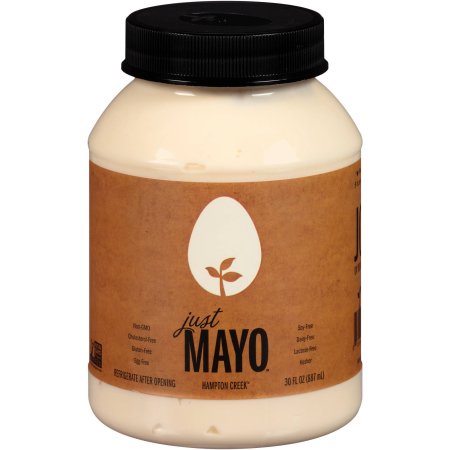The 1938 Code of Federal Regulations was created because of companies like Hampton Creek. The government wanted to give the public confidence that a company wasn't just slapping the name of a famous food on a jar -- a jar which may not contain that thing at all.
If you ask someone to bring cake, for example, and they bring you vegetable loaf and choose to call it "cake," that can be a negative.
Or if your mayonnaise is not mayonnaise, it's made of plants, but you want to call it mayonnaise. According to "standards of identity" in the Code of Federal Regulations, mayonnaise has to have eggs or it is false advertising to call it mayonnaise. So vegan mayonnaise can't actually exist. But Hampton Creek, founded in 2011, said their product looked like mayonnaise and tasted like mayonnaise and wanted to call it that. And vegans agreed, whereas in in 2002 the naturalistic food fallacy contingent declared it a win that Kraft was forced to remove the word “food” from Kraft Singles (1) even though it tasted like cheese. Fake cheese bad, fake mayonnaise good.
Vegans went further into demanding special treatment and got libertarian about it. They said palates should decide, not big government. They even claimed there was a government conspiracy against them. The government did not cave so Hampton Creek changed the name to "Just Mayo", and said "just" stood for justice, not that its product was just just mayonnaise and not mashed up plants.

Yet while that went on they weren't just trying to deceive the buying public, they were literally deceiving their own customers. To pump up sales, they sent contractors to buy up jars, found Olivia Zaleski at Bloomberg. Though emails showed they were doing it to excite stores like Safeway, they now contend it was to "check quality."
Who does quality assurance after the product leaves the factory? No one. That's a terrible idea. Who instructed these undercover people, sometimes buying 120 jars per day, to lie if asked about it? Hampton Creek. And it worked, sales went up 350 percent.
Hampton Creek was portraying itself as food for those more ethical than people who eat eggs. Yet they have been caught cheating to boost their image and hopefully spur more sales from the stores they were exploiting.
If any of us could successfully navigate that kind of hypocrisy, we'd have the marketing machine Hampton Creek does. Maybe it's something vegans develop as they're being better than everyone else.
NOTE:
(1) It was instead called “pasteurized prepared cheese product” even though it tastes like cheese.


